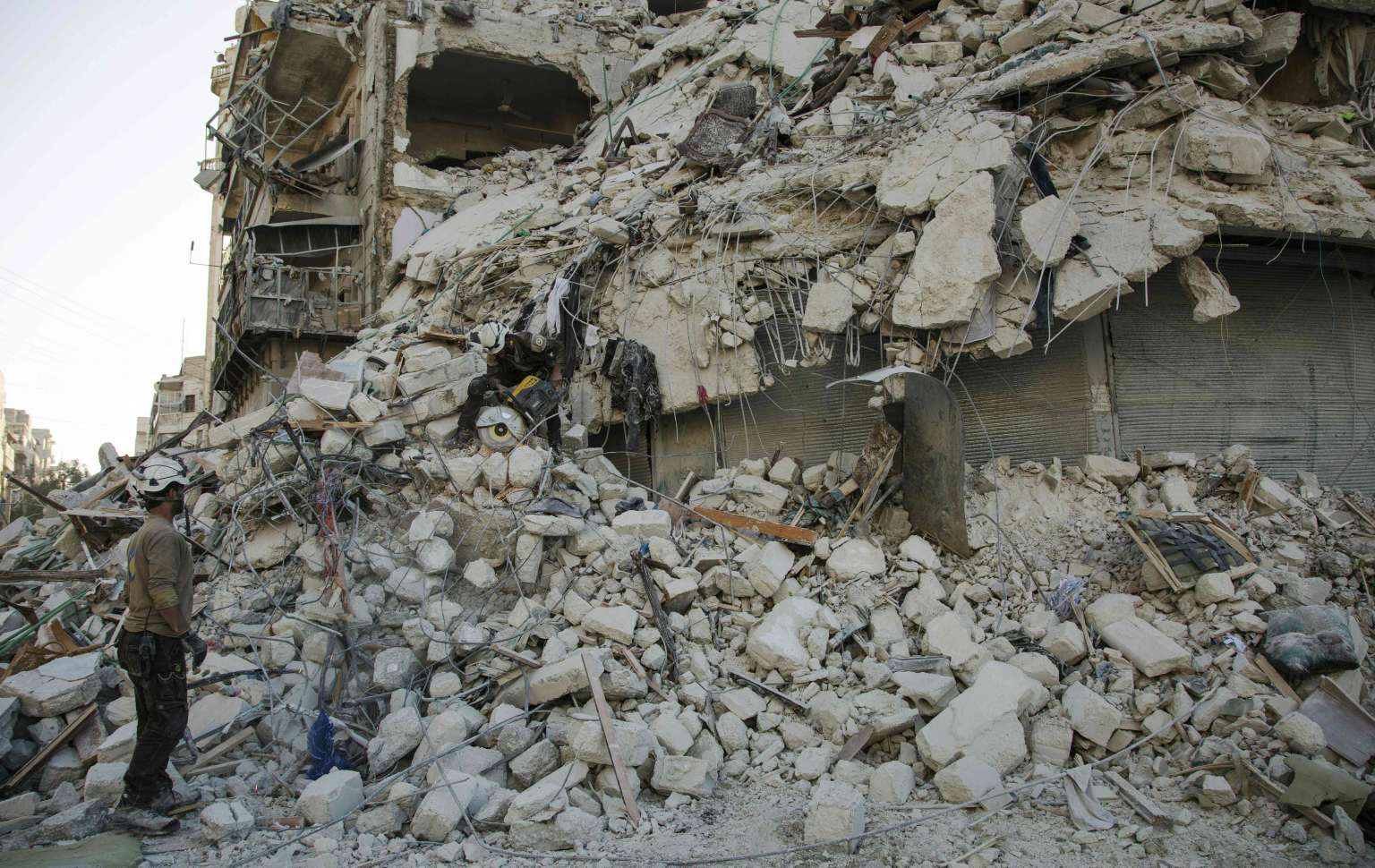EU decides against more sanctions against Russia for Syria bombing campaign, for now
Sign up now: Get ST's newsletters delivered to your inbox

A member of the Syrian Civil Defence stands amid the rubble of a destroyed building during a rescue operation following reported air strikes in the rebel-held Qatarji neighbourhood of Aleppo, on Oct 17, 2016.
PHOTO: AFP
Follow topic:
BRUSSELS (BLOOMBERG) - The European Union said it was too soon to consider imposing sanctions on Russia for the bombing of rebel-held areas of Syria, while maintaining the threat of action if Mr Vladimir Putin doesn't back down.
After two days of talks in Brussels, EU leaders said "all available options" remain on the table, without mentioning sanctions specifically, after they clashed over using more pointed language on Thursday (Oct 20). While the UK, France and Germany wanted to take a harsher tone with Russia, Italy's Matteo Renzi led those countries who opposed the move.
Russia's aggression in Syria has brought its relationship with the west to a new low. With ties already worse than at any time since the Cold War because of Mr Putin's annexation of Crimea and violent interference in eastern Ukraine, the Kremlin's support of the Syrian regime has raised tensions further and exposed divisions in the EU.
"It's clear that Russia's strategy is to weaken the EU - we have no illusions," the bloc's president, Mr Donald Tusk, told reporters early on Friday (Oct 21). "Increasing tensions with Russia is not our aim; we are simply reacting to steps taken by Russia."
EU leaders met amid growing international condemnation of the bombing of Aleppo, where some 275,000 inhabitants remain trapped.
Syria's government opened two crossings for fighters who want to leave the rebel-held eastern part of the city, after announcing a three-day humanitarian pause to its offensive. United Nations Secretary General Ban Ki Moon said on Thursday that Aleppo will run out of food rations by the end of the month.
The EU has added progressively tougher sanctions on Russia since March 2014 for its involvement in Ukraine, including broad economic restrictions as well as travel bans and asset freezes on individuals and companies.
While leaders were not planning to make any decisive steps toward additional sanctions at the summit, the final communique represents a watering down of more specific threats contained in their draft text.
"I would have welcomed the previous formulation in the text," German Chancellor Angela Merkel told reporters in Brussels on Friday. "That's why I say this is a minimum."
Though the communique kept all alternatives alive, Mr Renzi questioned the likelihood of fresh sanctions.
"I believe that the statements approved in the final document say we need to use all possible pressures to reach an accord in Syria," Mr Renzi told reporters early Friday. "It is difficult to imagine that this could involve further sanctions against Russia."
Poland openly disagreed. The summit's conclusions are "unequivocal", Polish Deputy Foreign Minister Minister Konrad Szymanski told reporters on Friday.
"All options cover sanctions, various tools limiting Russia in relation to what is happening in Syria today," Mr Szymanski said. A "lack of change to Russian behaviour in Syria will cause us to return to this topic very quickly."

